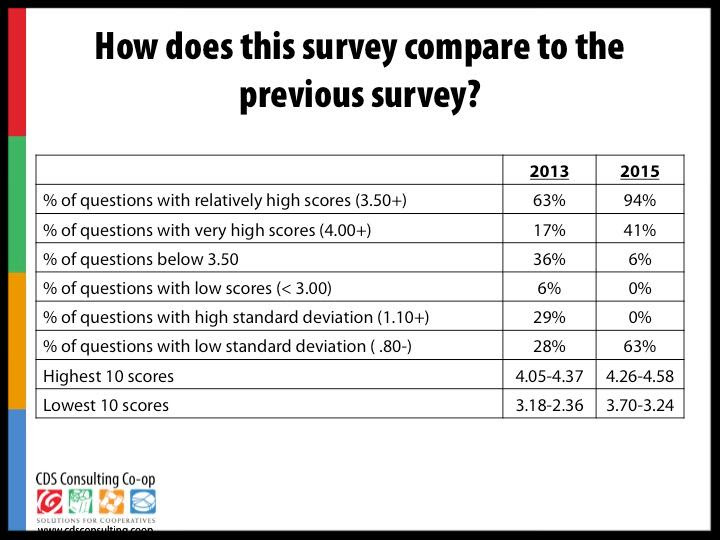As the competitive environment continues to heat up around us, there is increased competition for employees as well as food dollars. By creating a continuously improving workplace environment where all voices are heard and feedback is taken seriously, co-op managers can help ensure that the competition doesn’t lure away your talented, passionate and experienced employees.
An Employee Survey can help you uncover and resolve issues that are important to your employees and your business. Sometimes in the intensity of day-to-day operations, ideas and suggestions to improve the co-op don’t flow freely between staff and management. The survey process provides a channel that can help shift that dynamic because of all the ideas that are generated by staff for making the co-op a better employer and a more efficient operator.
Something we find when conducting a second, third or even fourth survey is that when management tackles the issues that surfaced in previous surveys, employees notice and are appreciative. Workplace improvements generally mean happier employees. And happier employees generally mean better business results. For more information on business results and employee satisfaction, see the Co-op Grocer article Investing in Staff Satisfaction.

Management at that co-op took this dissatisfaction seriously and committed to on-time and meaningful performance evaluations for all staff members. This year’s survey they were rewarded with big increases in scores on questions related to performance evaluations and comments like, “My evaluation was great! I got appreciation for what I do well and clear direction on how I can help achieve our department’s goals.”

While surveys are often associated with measuring staff satisfaction and increasing engagement, another sometimes overlooked benefit is uncovering operational issues that may not otherwise have come to management’s attention. In follow-up, in-person interviews, we can learn specifics about issues such as inefficient designs, outdated procedures, unnecessary waste and ill-functioning equipment. One GM learned about a frequently missing-in-action Store Manager. Another implemented new communication systems with an off-site commissary to reduce inefficiencies related to call routing between locations, as a result of survey feedback.
- Absolute anonymity for staff
- At least 90% participation rate
- Comparison data with more than 200 other co-op surveys
- Data for policy compliance reporting
- Summary report written directly to staff (delivered after review with management)
- In-person interviews for more detailed information and specific suggestions for improvement



Have more questions?
Get in touch with one of our consultants.


